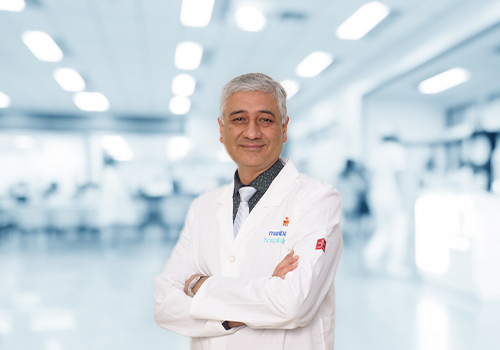
Everyone has a misconception that heart attack occurs during a time of extreme stress or strenuous activity. When you have any heart disease, you are at an increased risk for heart attacks. It can occur anywhere at any time. It commonly occurs when you are performing daily activities like relaxing on the couch, shopping, or even after waking up from sleep.
Sudden blockage of blood supply to the heart is known as a heart attack. It is a medical emergency. The person who has a heart attack may experience the following signs and symptoms:
-
Crushing pain in the chest.
-
Cold sweat.
-
Shortness of breath.
-
Lightheadedness, dizziness, fainting.
-
Numbness, or tingling in the arm.
-
Nausea (common in women).
Usually, the symptoms of a heart attack last for more than 10 minutes. It may vary from person to person. Some people may not experience any symptoms, and some may experience symptoms from mild to severe.
When Someone is Having a Heart Attack
Look for the four Ps:
-
Pain-a continuous pain in the chest, which spreads to the jaw, neck, or arms.
-
Pale skin
-
Rapid and weak pulse
-
Perspiration/sweating
What should I do if Someone has a Heart Attack?
Here are some measures you should follow if you or someone is experiencing symptoms of a heart attack:
Make a call to a medical emergency number: Call for medical help and inform that someone had a heart attack. Do not ignore or attempt to explain the symptoms of a heart attack for more than five minutes. If you do not have access to emergency medical services, take the person to the nearest hospital. The operator may advise taking an aspirin to help unblock the blood vessels in the heart. But be sure to tell the operator if the patient has an aspirin allergy, a bleeding disorder, or is taking blood thinners.
Sit or lie down: Sit or lie down calmly until the arrival of the ambulance. Loosen any tight clothing.
Stay calm: Anxiety increases the heart’s need for oxygen and is known to worsen a heart attack. Ask the person to take deep breaths and remind that he/she is safe, nothing will happen and that they will get help.
Take nitroglycerin: Take nitroglycerin if it is prescribed as it helps to ease chest pain by opening up your blood vessels so that your heart does not have to work as hard.
Start with CPR if the person is unconscious: If you are with a person who might be having a heart attack, you may be advised to begin cardiopulmonary resuscitation (CPR). If you have not received CPR training, doctors may recommend skipping mouth-to-mouth rescue breathing and performing only chest compressions.
What should not be done if Someone has a Heart Attack?
Do Not,
-
Leave the person alone
-
Let the person convince you not to call for emergency help
-
Wait till the symptoms go away
-
Give the person anything by mouth
If you or anyone around you experience any warning signs of a heart attack, don’t wait for medical help, right away start with first aid and then call for medical help. Giving first aid at the time of the attack can reduce the extent of damage to the heart muscle and help to improve the person’s survival. Timely first aid can be life-saving.




















 5 Min Read
5 Min Read














